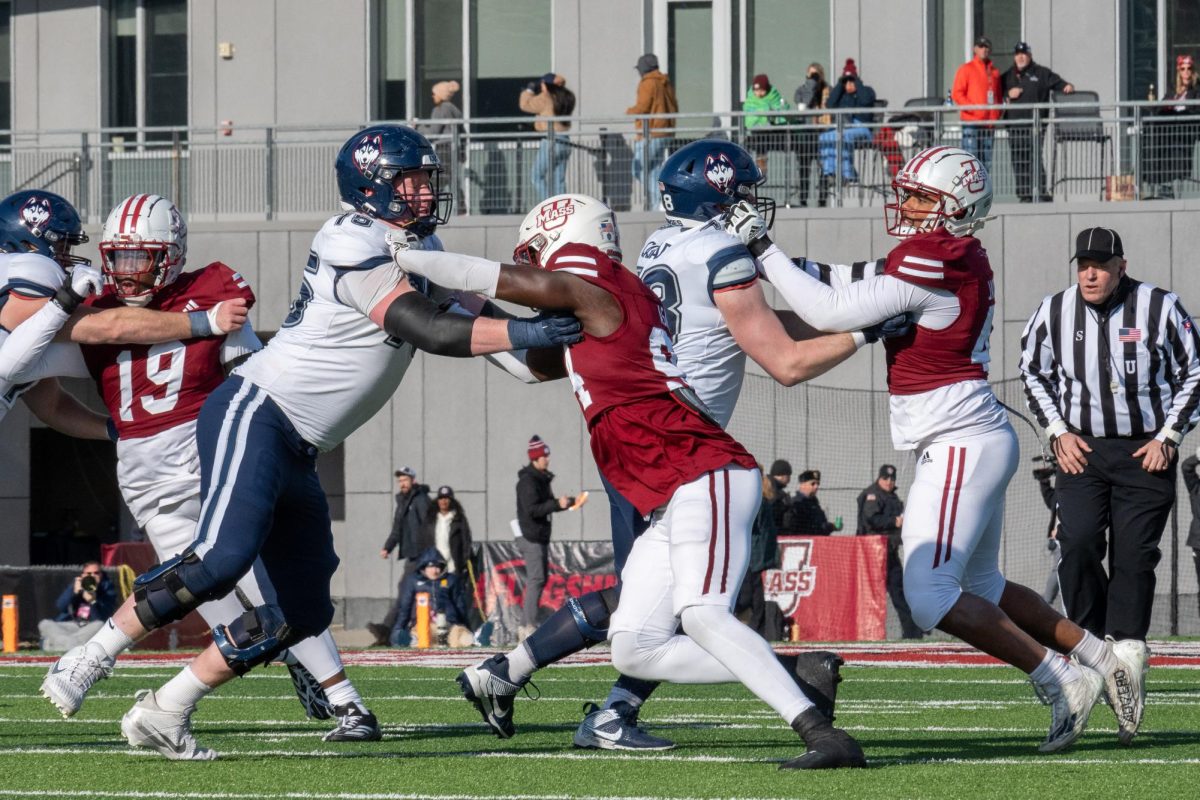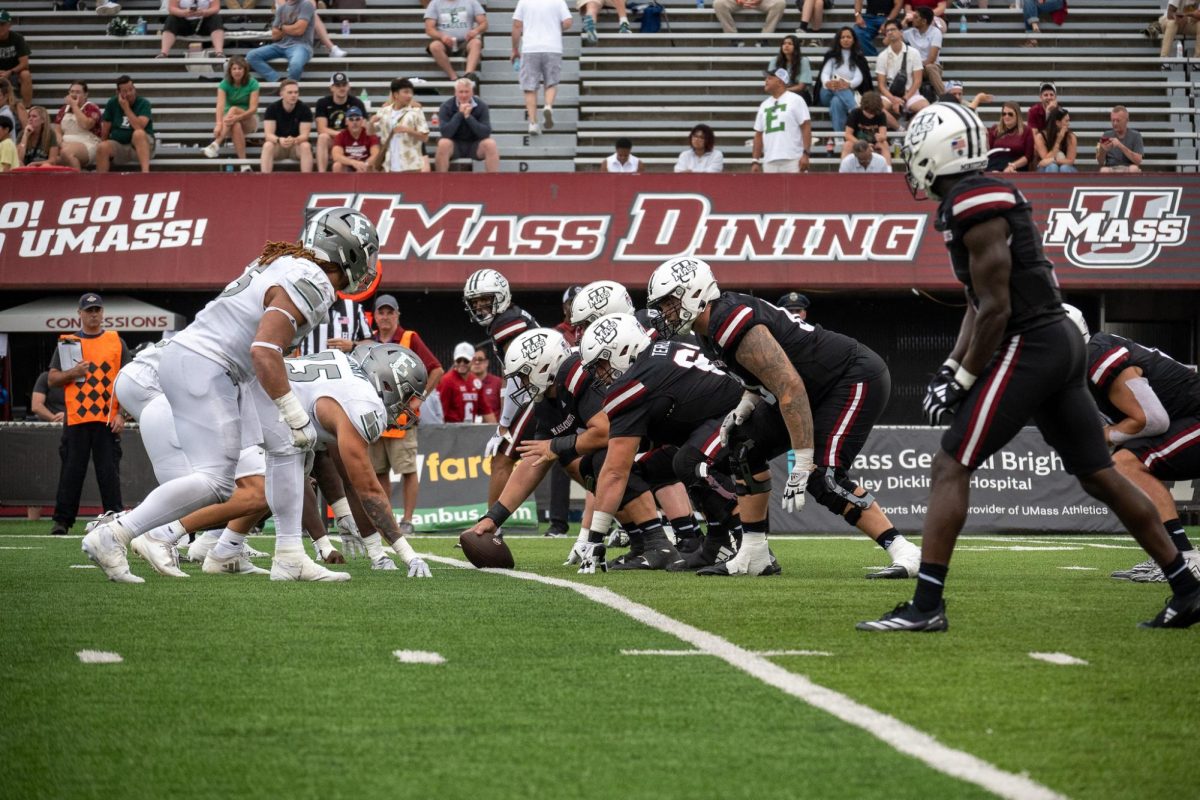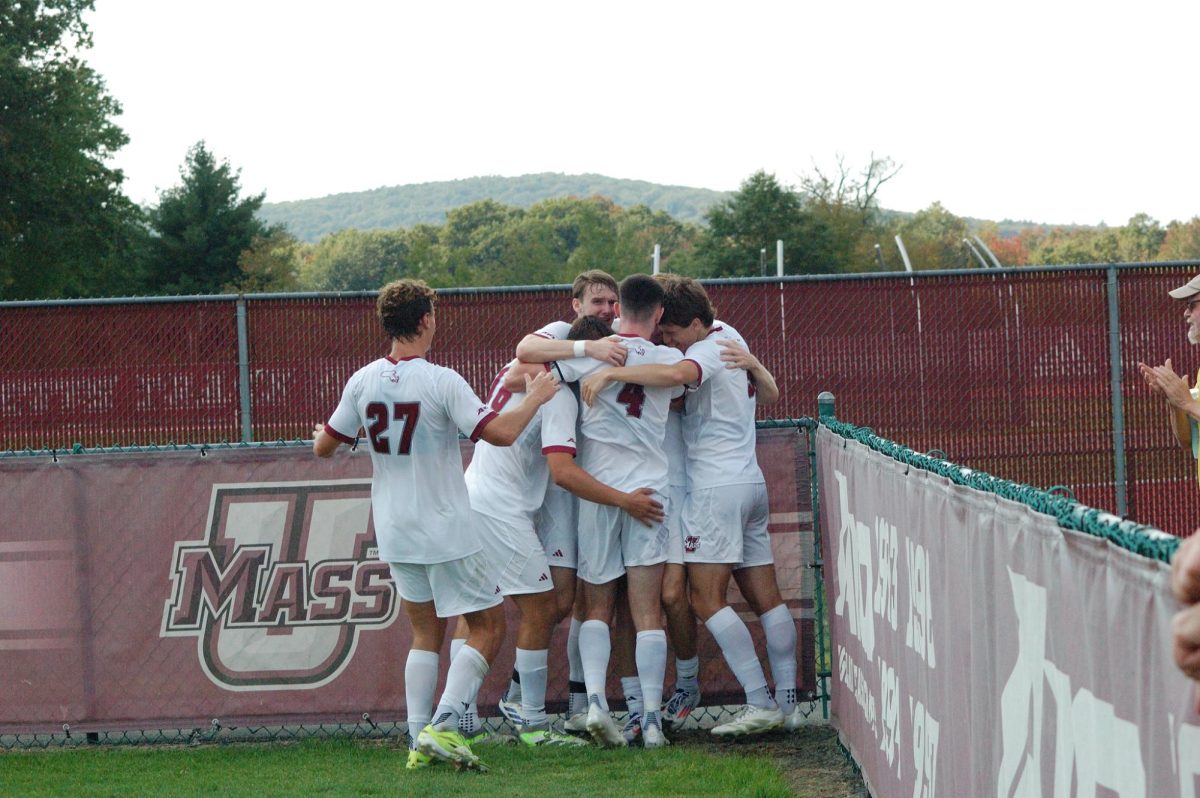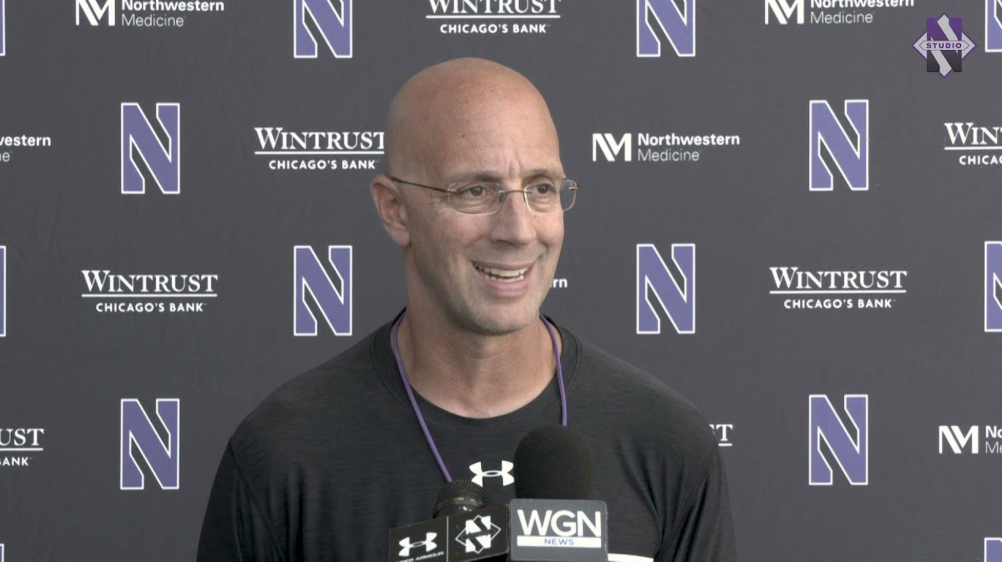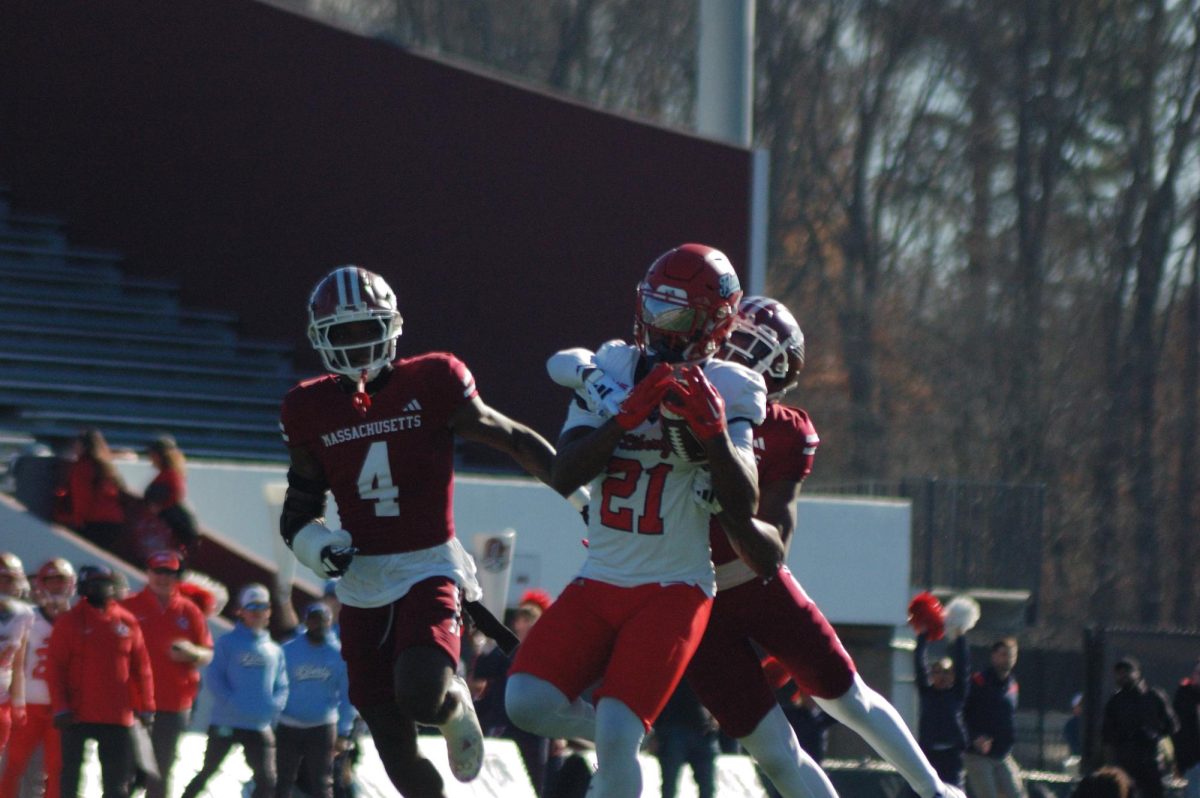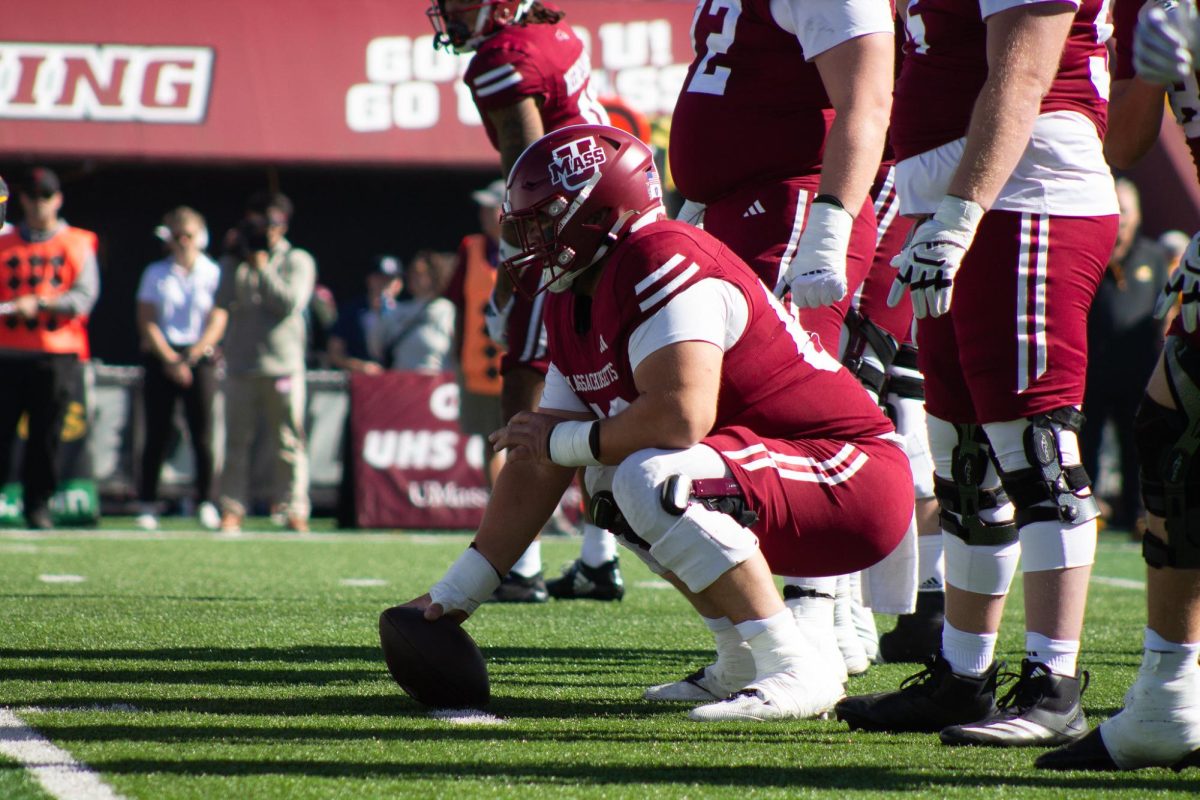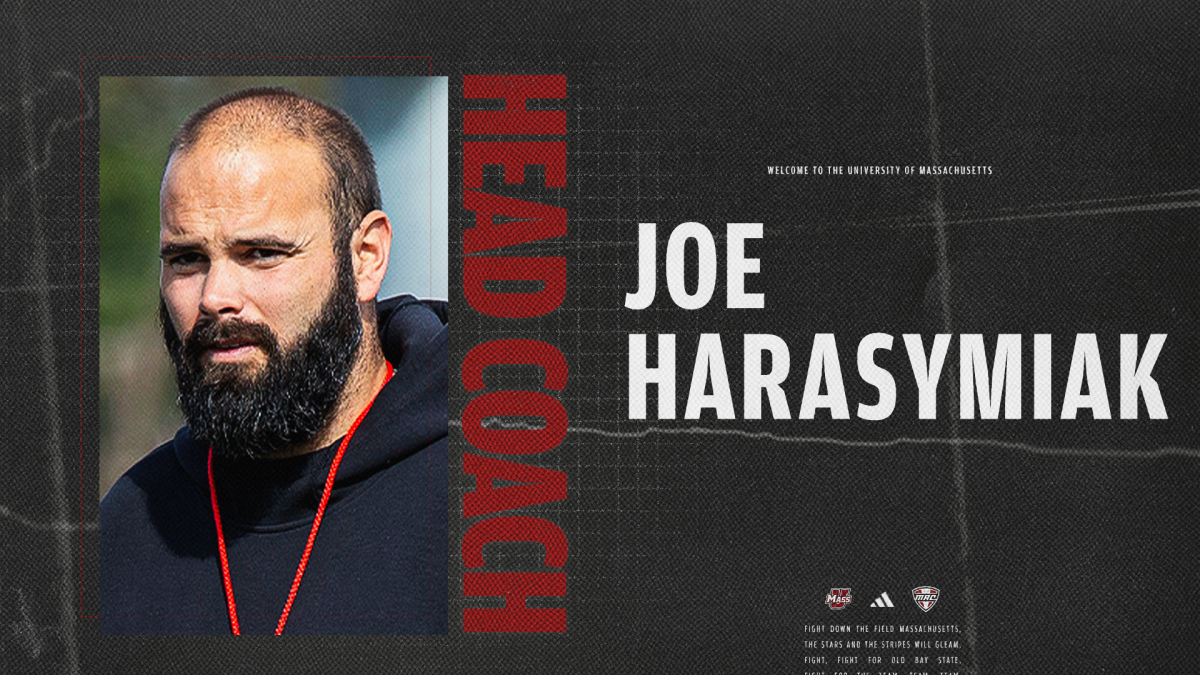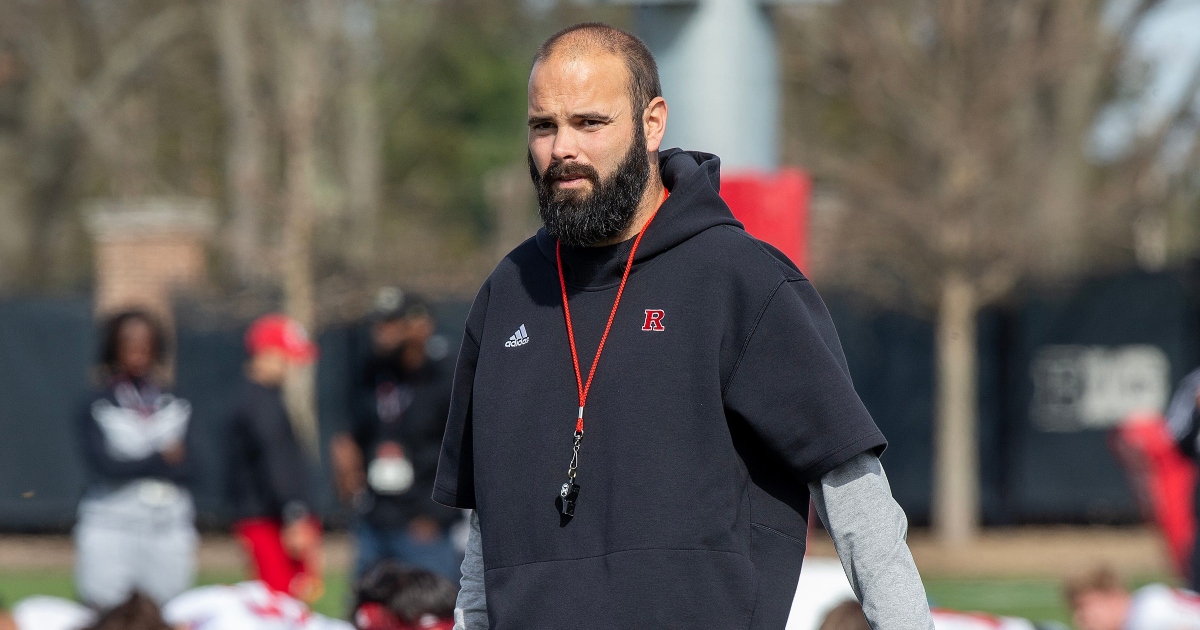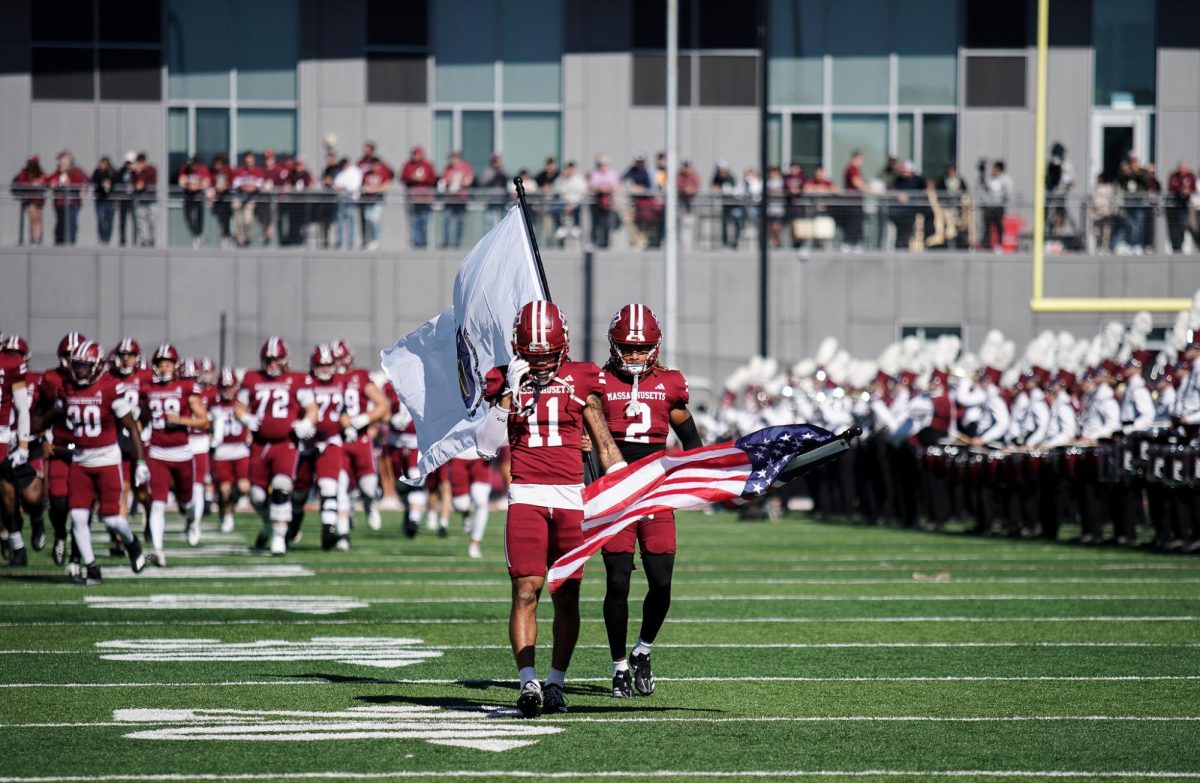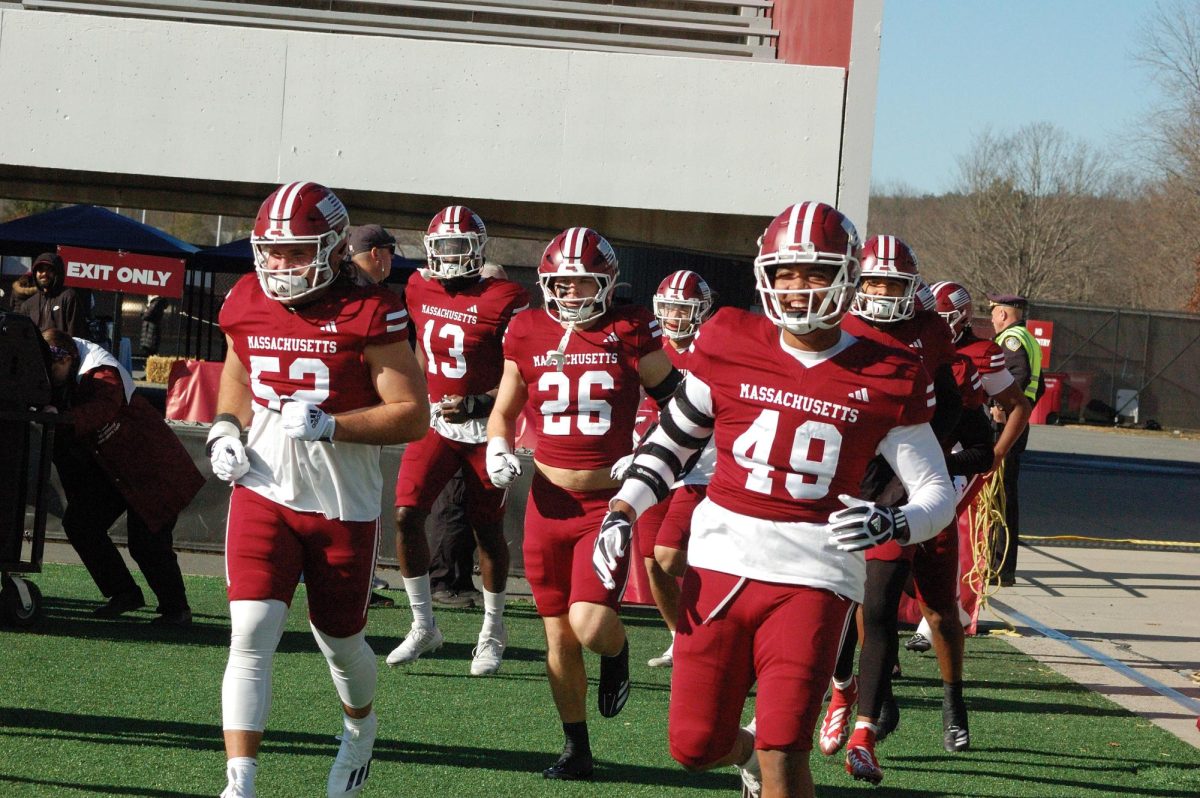
College football Pro Day’s are the perfect opportunity for former collegiate players to showcase their skills and turn a lifelong hobby into a profession.
Although there may not be many differences between the basics of college football and the NFL – the field is still 100 yards and there are 22 players on the field at all times. Competition and skill aside, there is one major difference between the two games: money.
Playing in the NFL offers football players a tremendous opportunity to earn money and support their family, something they can’t do while playing football in college.
A number of players at Massachusetts football’s Pro Day on Thursday reflected on their opportunity to earn a pay check from the game they’ve been playing their entire life.
Former UMass wide receiver Tajae Sharp is the most highly touted Minutemen prospect this year, and if the right opportunity happens and he puts in the necessary work, he has the potential to earn a significant amount of money playing the game he loves. For Sharpe, his passion for the sport is more important than any of the financial implications of playing in the NFL.
“Money is not the most important thing at all (in my decision),” Sharpe said. “It’s me loving the game and wanting to play this game at the highest level since I was a young kid. Obviously the money is just a bonus, being able to take care of myself and my family, that’s just a plus, but it’s not the priority at all.”
Now for someone like Sharpe who is projected to be a mid to late-round pick in this year’s draft, it’s not surprising that money is not the most important thing to him. For someone like cornerback Randall Jette who isn’t guaranteed a draft slot, the money adds an additional incentive.
“It’s big, to be able to help my family, it’s pretty big, but playing for my love (of the game) is more important to me, but money is definitely a big deal,” Jette said.
The idea of earning a pay check in football sparked the question amongst players about whether or not college athletes should be paid. As one might expect, former UMass players were almost completely on board with pay for play.
“I definitely think college athletes benefit the university in a great way,” Sharpe said. “We help bring a lot of money into the University by selling out games, selling jerseys and t-shirts and memorabilia and things like that. However that may play out, I’m definitely in favor of the college kids, but I definitely think we deserve something.”
Jette agreed with his former teammate, citing the large work load that is put on college athletes.
“I think we should get something because most college athletes can’t hold a job because of the busy schedule so they have no means of income. So I think athletes deserve some money, some form of compensation,” Jette said.
Quarterback Blake Frohnapfel, while believing that players should receive some sort of payment, recognizes that it is a difficult issue.
“College athletes do so much for the university that their value really extends beyond their scholarship,” Frohnapfel said. “But there’s a lot of things that go into (the pay for play debate) and when you open that door you sort of erase the amateurism and it takes away from what college sports are really about.”
Jamie Cushman can be reached at [email protected].


